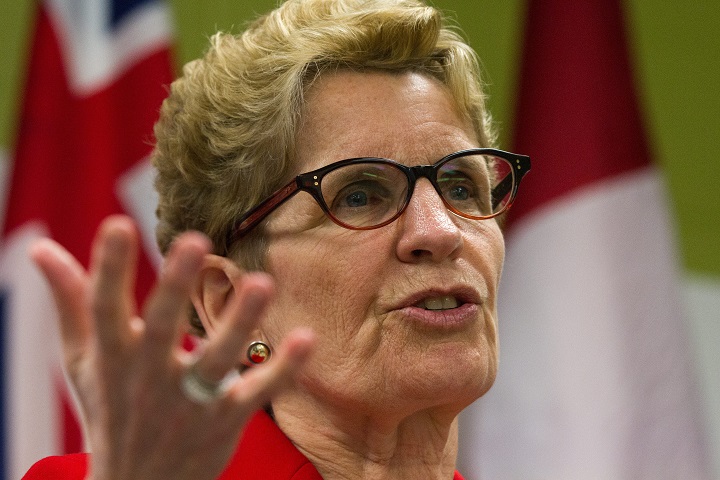TORONTO — Ontario’s governing Liberals are denying suggestions that a woman who accused a now-former member of the legislature of workplace sexual harassment is prevented from speaking out about it.

Premier Kathleen Wynne revealed Friday that former Liberal MPP Kim Craitor was asked to resign in 2013 after workplace sexual harassment complaints were made against him, and she felt action needed to be taken after receiving the results of an independent investigation.
Craitor, now a city councillor in Niagara Falls, has not responded to several messages from The Canadian Press, but he told the Niagara Falls Review that the allegations were “unfounded and unsubstantiated.”
READ MORE: Ontario premier names former MPP asked to resign over sexual harassment complaints
A woman who worked in Craitor’s office told the paper she disputed his characterization of the allegations as “unfounded,” but that she was bound by a non-disclosure agreement and couldn’t say any more.
Both opposition parties took that to mean that the woman was muzzled by the government, but Wynne denied that in question period and suggested the woman herself asked for the agreement.
“The woman came forward and she is free to talk and tell her story as she sees fit,” Wynne said.
“These questions demean the experience of women who make complaints. When a complainant suggests that a confidentiality agreement be part of a resolution then of course we agree to that.”
Craitor also told the newspaper that the Liberal party paid the complainants “to keep the allegations quiet,” but Deputy Premier Deb Matthews said that severance was “completely separate” from any confidentiality agreement.
“The premier did a perfect job in dealing with these issues when they came forward,” Matthews said.
NDP Leader Andrea Horwath said she hoped any severance money paid to the complainant didn’t come with strings attached.
“One of the things that we don’t want to see is money exchanged for a person’s right to decide their own course of action when it comes to a sexual assault complaint,” she said.
The Progressive Conservative critic for women’s issues said she is not completely confident there would be no repercussions if the complainant spoke out.
“In the reports it looks like (she) wanted to come forward … but felt she couldn’t come forward any further,” she said. “Why did (she) feel that way?”
Employment lawyer Daniel Lublin said confidentiality clauses are common when complaints of workplace sexual harassment are settled. That confidentiality doesn’t always apply equally to all parties, he said.
READ MORE: Liberal Kim Craitor resigns Niagara Falls seat, paving way for byelection
- Some 2019 candidates ‘appeared willing’ to engage with foreign interference: Hogue inquiry
- Foreign interference ‘undermined’ public confidence in elections: inquiry
- Princess Anne to help commission new navy vessel in B.C. ceremony
- Tories grill Liberals in question period about minister’s ties to lobbyist, PPE company
“The alleged harasser wants the confidentiality,” said Lublin, a partner at Whitten and Lublin. “The complainant usually doesn’t get full confidentiality over the allegations unless that’s requested or negotiated.”
Wynne had been under increasing pressure this week to name caucus members she has had to discipline over accusations of inappropriate behaviour, after she admitted there have been a “couple instances.”
Matthews clarified Monday that a “couple” was indeed two, but the premier refuses to name the second MPP. She has not said how she disciplined that second MPP, or if that person is still a sitting member of the legislature.
The two cases Wynne has dealt with are the same incidents the premier vaguely referred to in November 2014, when she said she had “taken action” against complaints of sexual harassment, though she didn’t say at the time the cases involved MPPs.
Wynne said she named Craitor only because a woman identified herself to the media.



Comments